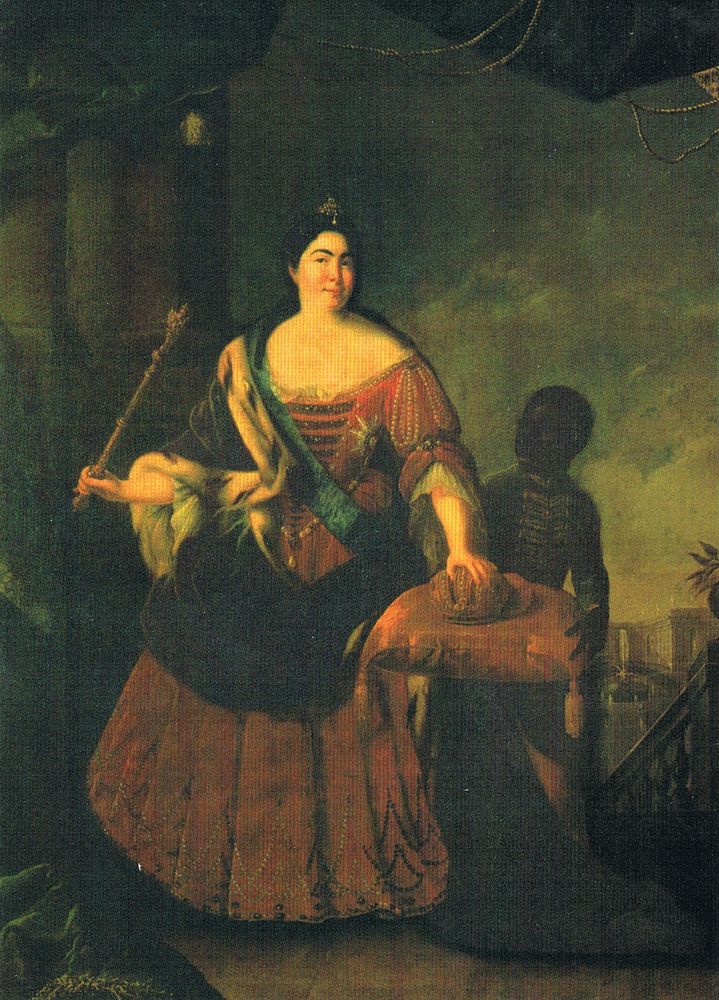A family is a team because everyone is taking care of each other. Just like a team, each family member often has the same goals and affordances in life. They also, most often, share an environment; whether that be the same home, same loved places or same city.
Where the Concept of Family was Redefined
In the late 1960’s early 1970’s in an impoverished communist Odessa, Russia lived my mother. She lived with her mother and her mother’s parents. They lived in what she now refers to as a “Russian ghetto”. This so-called ghetto was a small two-story apartment building that was worn down and old with a courtyard in the center; it didn’t look like an apartment building, but more like a motel (or Irby/Phelps). Each apartment had one or two small bedrooms

Irby Building
Taken by Daisy Rymer
and a stove, oven, sink, fridge, and toilet, and bath. My mother defines where she lived as “nothing special” because the kitchen also happened to be the bathroom. The building was composed of families, friends, and strangers. But after a few years of living together, it had seemed that everyone was family. It was not until leaving Russia that my mother’s team was truly created.
In the building my mother lived in, all of the occupants did everything together. They were constantly collaborating on everything and according to Susan Nancarrow “collaboration is acknowledged as an important component of team processes”. The courtyard was a shared space, of course, but it was more than just that. Hung up everywhere was everybody’s drying laundry. There were ten tables where everyone would sit and eat breakfast and dinner together. Dinner was cooked by everyone for everyone. About 20 children were living in the building who would all play in the courtyard throughout the day. Behind the apartment was the chicken coup. Everyone took care of the chickens, this is how the community got their eggs and sometimes their chicken. My grandmother and others would take chickens out of the coup and kill them themselves; this was done by snapping the chickens’ necks. After the chicken was dead, they would be de-feathered and cooked to be eaten. Next to the coup was a vegetable garden which would be taken care of by everyone. Another source of food was the food stands they would go to. All of the food shopping would be done together. The community would have to wait in lines for bread and fish. All of the children in the building became best friends, spending every day together, going to school together, and going to ballet and ice skating together.
Where the Concept of Family was Destroyed
As early as 1700, Jewish people were discriminated against in Russia. During her rule, Catherine I ordered all of the

Catherine I
Photo taken from Flikr
Jewish people to be expelled from Russia. Years later when Poland was partitioned among Russia in the late 1770s, Poland and Austria brought more Jews into Russia and expulsion was no longer viable. So, Catherine II created the Pale of Settlement, and later Alexander I created the Regulations Regarding Jews. These two regulations forced Jewish people to live outside of a certain area. The hate against the Jews never went away, more regulations and restrictions were set throughout the 1800s and on to the 1900s. In the year before my mother was born, 1967, the Russian government launched an anti-Zionist, anti-Israeli media campaign in which, among other accusations, Jews and Israelis are compared to Nazis. Jews started to become publicly shamed or put on trial for their beliefs. Jewish activists began to be harassed, jailed, or put in psychiatric institutions. In March of 1971, the Russian government decided to allow Jewish people to emigrate out of Russia. Living as a Jew in Russia was not easy.
According to Mathieu Feigean, often “connections between team members are assumed to be driven by affordances”, which are what the environment offers a group of people. If someone were to move out of a shared environment, they join a new team. This is what happened to my mother and grandmother when they immigrated to the United States.
At just eight years old, my mother and her mother left Russia in search of a better life. The two set off on a mission, leaving behind the community that they had come to know as a family as well as members of their actual family. The hardest thing for my mother was leaving her mother’s parents with whom they lived. My mother also left behind her father’s parents, her mother’s two sisters, her uncle, and her cousin Edward who was like a brother to her.
My mother and grandmother moved to Kanarsi, Brooklyn, a lower-middle-class neighborhood filled with Jewish and Italian occupants where most occupants barely made minimum wage. Moving to America with her mother, they had very little money as they came to America with nothing and my grandmother was the only one who could work. The two moved into the basement of an apartment which was a one-bedroom. The two also didn’t speak a lick of English and had to assimilate fast. So my mother started elementary school and my grandmother found a job at a laundromat.
Little did they know how many more people would be coming into their lives. After living in Brooklyn for a few years, my grandmother met a man named Sam. She soon married this man and my mother had a new father. A year after the wedding came my mother’s new sister, Lisa. The people my mother relied on and cared about began to grow from one to six. But the new people did not stop. At age 30, my mother met my father. The two started a family with me, my brother, and my sister. This became my mother’s team and she became the leader and everyone’s rock.
The New Family That Was Created
After many hard years of assimilating to her new life – having to learn English from scratch and making brand new friends – graduating from Syracuse University, going on to New York Law School, and becoming a lawyer, my mother met my father. The two instantly fell in love and got married. After two years, my brother Jacob and I were born. My mother put everything aside to take care of the two of us. Only thirteen months later, my younger sister Sarah was born. My mother became a full-time mother while my dad was at work from 5 AM to 5 PM every Monday through Friday. My mother put everything aside for her children, including herself. She quit her job and made watching and taking care of us her priority. She worked as hard as possible to give us everything we could ever want. My mother understood what it was like to grow up with almost nothing except for hardships and wanted the opposite of that for her children. Her past made her strong and her strength made her children strong.
Sources
Feigen, Mathieu, et al. “Achieving teamwork in naturalistic sport settings: An exploratory qualitative study of informational resources supporting football players’ activity when coordinating with others.” Psychology of sport and exercise 38 (2018): 154-166.
Nancarrow, Susan A, et al. “Ten Principles of Good Interdisciplinary Team Work.” Human Resources for Health, vol. 11, no. 1, 2013, p. 19.
United Nations High Commissioner for Refugees. “Jews in Russia and the Soviet Union: Chronology of Events: 1727 – 1 January 1992.” Refworld, www.refworld.org/docid/3ae6a865c.html.
 NOLAbeings
Multimedia artist Claire Bangser created NOLAbeings as a portrait-based story project that marries...
NOLAbeings
Multimedia artist Claire Bangser created NOLAbeings as a portrait-based story project that marries...
 Data corner: Adobe Suite (create a PDF, social media graphic, presentation, edit a photo and video
Data corner is where you go to work with analytics and top tech skills. It takes on everything from PERL and SQL to Canva and Sprout Social.
Data corner: Adobe Suite (create a PDF, social media graphic, presentation, edit a photo and video
Data corner is where you go to work with analytics and top tech skills. It takes on everything from PERL and SQL to Canva and Sprout Social.
